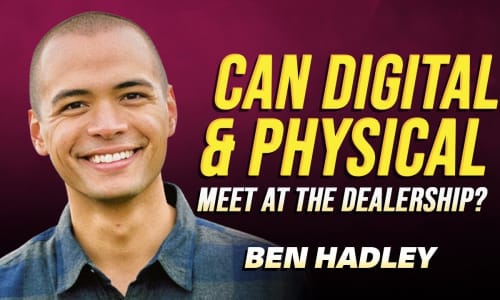See all The Dealer Playbook transcripts on Youtube

Can Digital And Physical Meet At The Dealership? w/ Ben Hadley
35 minutes 30 seconds
🇬🇧 English
Summaries Topics Transcript Chapters Titles Socials Twitter Blog Post Newsletter Quotes Quizzes Ask ChatGPT

Omnivision Solutions Ltd